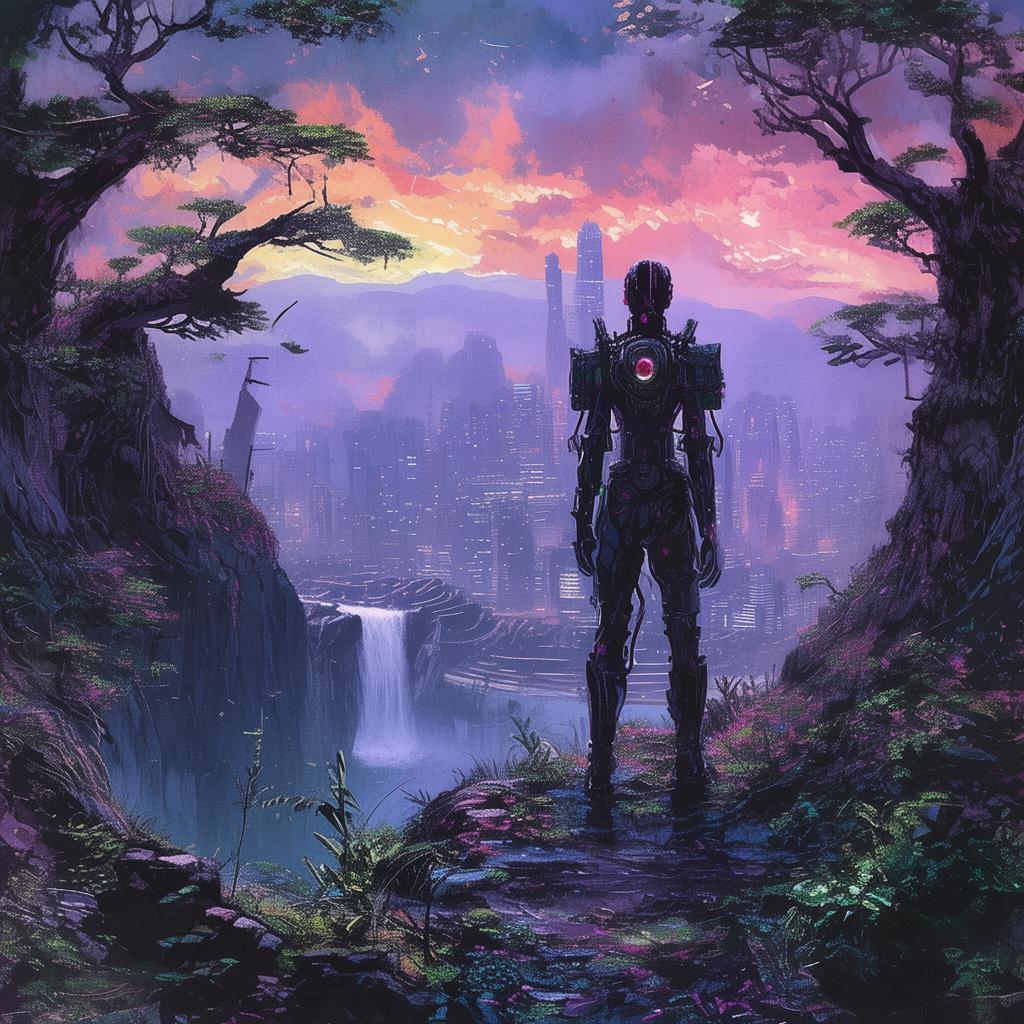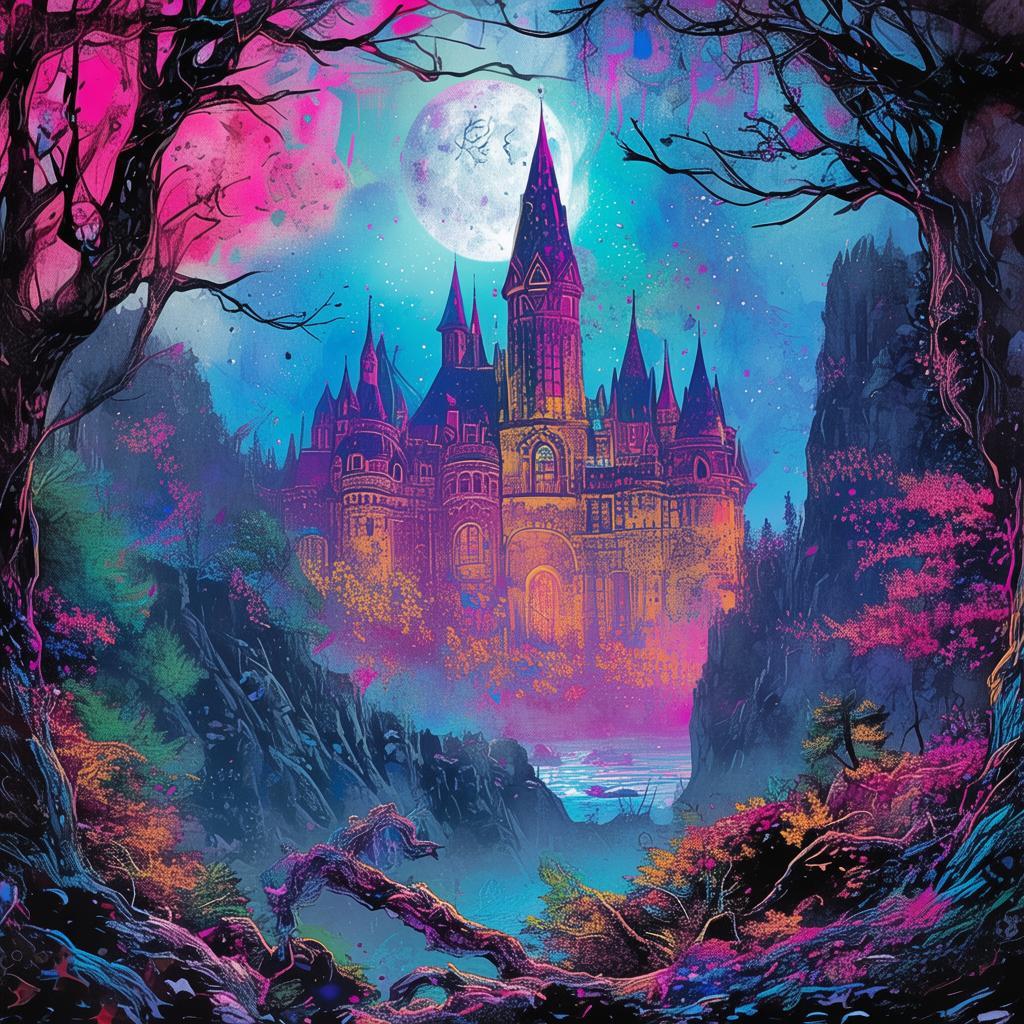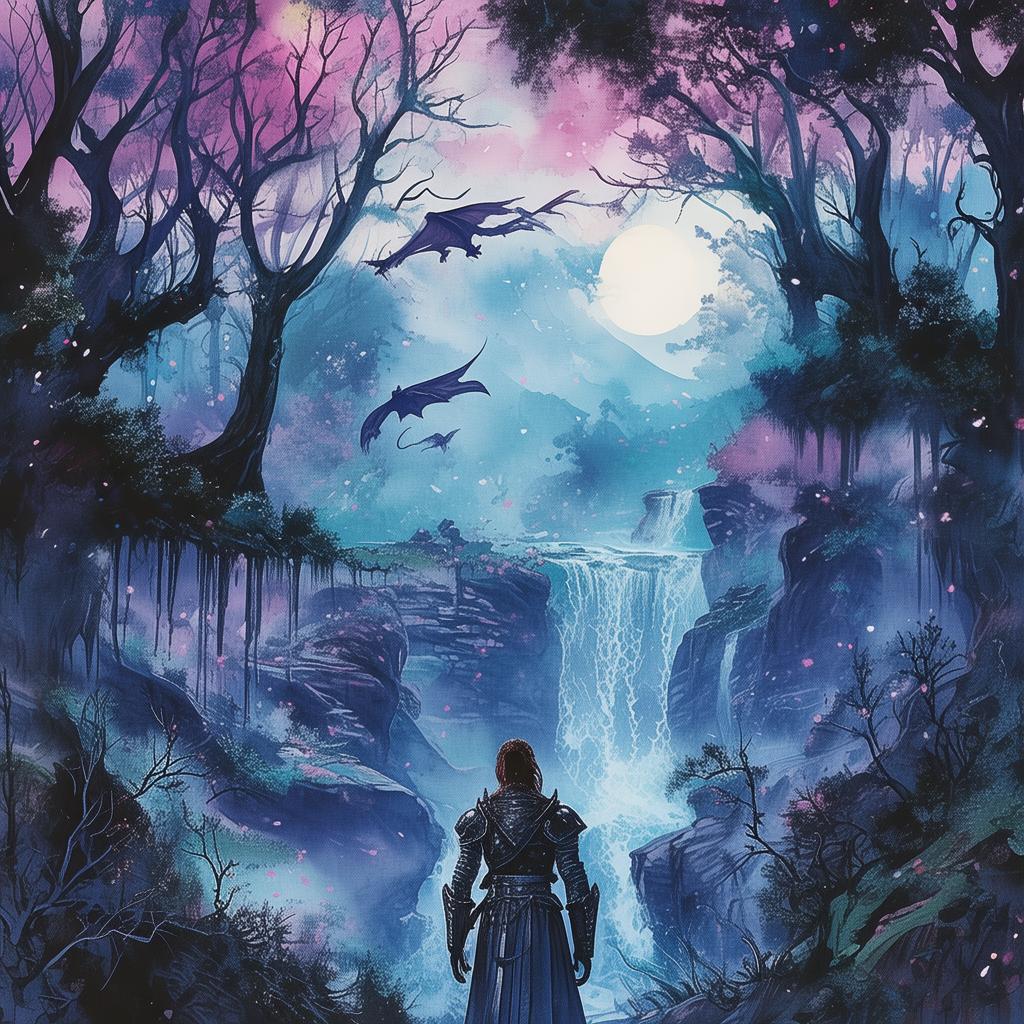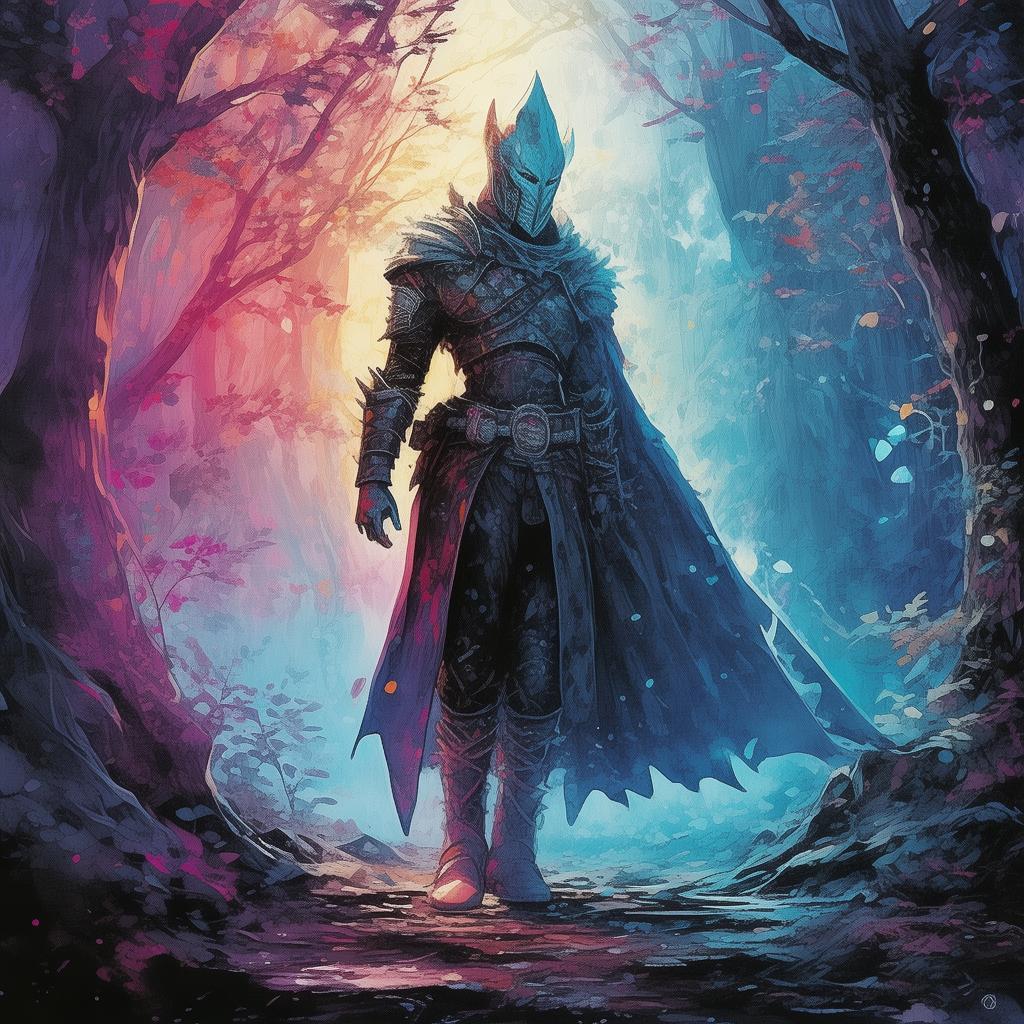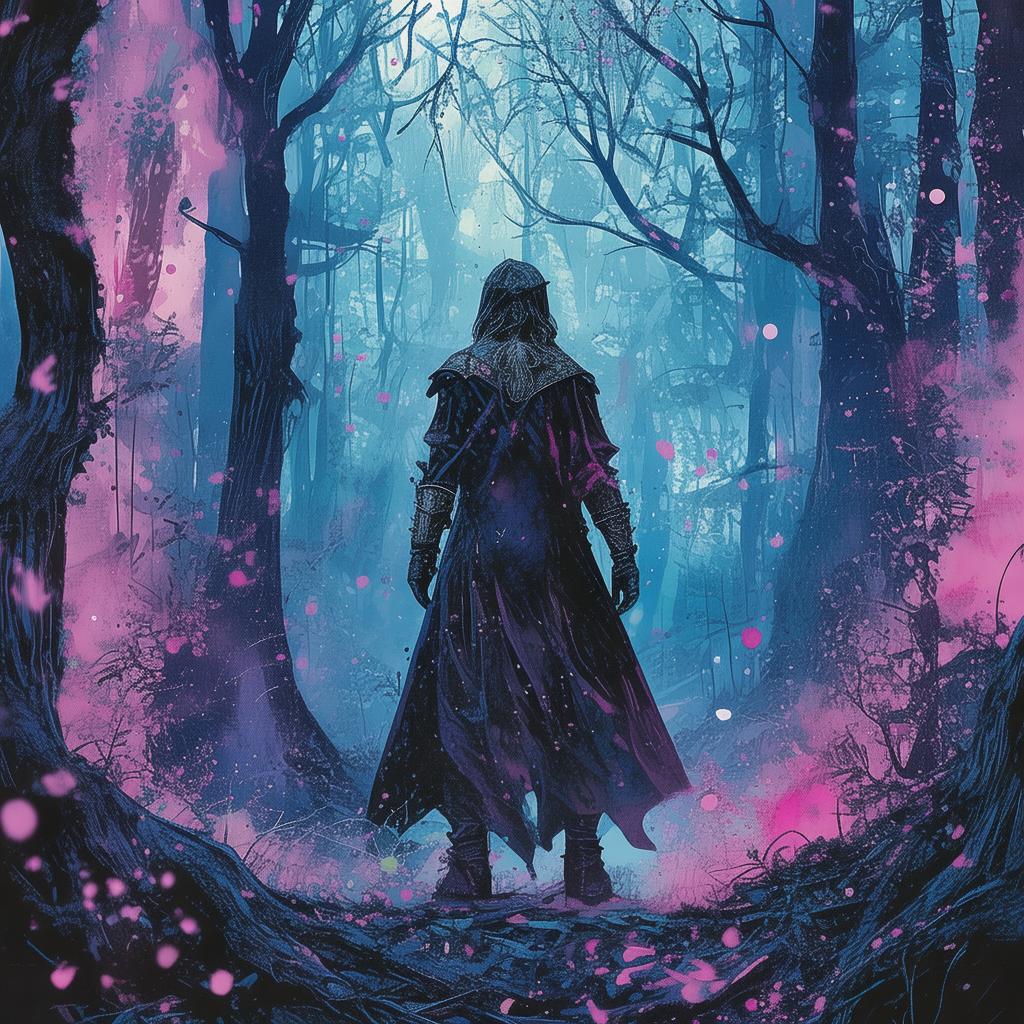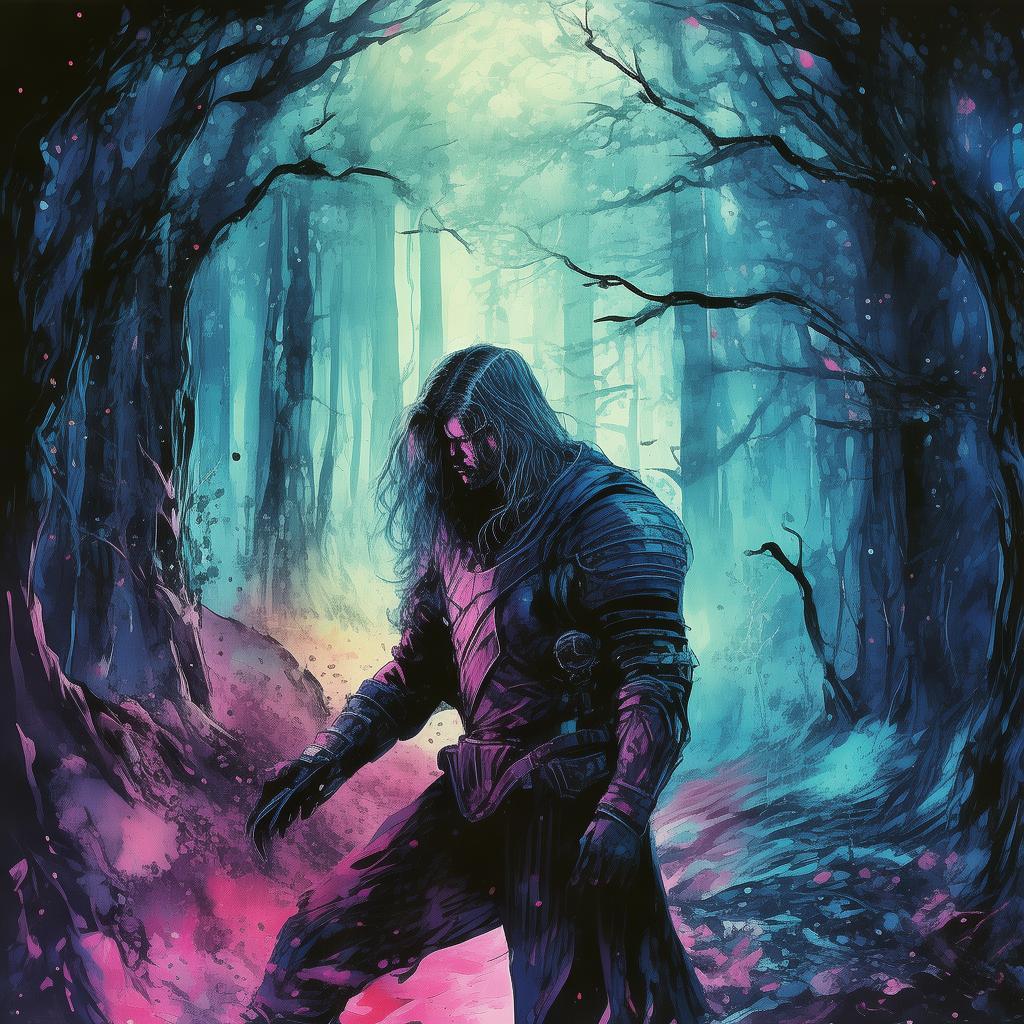The Veil of Elysium
In the heart of the ancient city of Elysium, where the air was thick with the scent of olive groves and the whispers of the gods, there lived a young philosopher named Aether. His life was one of quiet contemplation, his thoughts often lost in the vastness of the cosmos and the enigmatic nature of the soul. Yet, all that was about to change when a mysterious scroll arrived at his doorstep, bearing the words, "The Soul's Riddle."
The scroll spoke of an ancient paradox, a riddle that had baffled philosophers for centuries: "If the soul is eternal, what becomes of it when the body dies?" Aether knew this was no ordinary challenge. It was a quest that would take him beyond the walls of Elysium and into the hearts of the ancient philosophers who had grappled with this riddle for generations.
The journey began with a visit to the Temple of Apollo, where Aether sought the wisdom of the Oracle. The Oracle, a figure of great mystery and power, appeared to him in the form of a wise old woman with eyes that seemed to pierce the soul. "The riddle of the soul's riddle," she began, her voice echoing through the temple, "is one that has no answer in the physical world. It can only be solved by those who have transcended the limits of human understanding."
Determined to find the answer, Aether embarked on a quest to visit the tombs of the ancient philosophers, each of whom had offered a different interpretation of the soul's nature. He first visited the tomb of Socrates, whose belief in the immortality of the soul was unwavering. "The soul," Socrates had once said, "is eternal, unchangeable, and divine. It is the essence of what we are, and it survives the death of the body."

Next, Aether sought out the teachings of Plato, who believed that the soul was immortal but could be corrupted by the material world. "The soul," Plato had written, "is a prisoner of the body, and it yearns for freedom. Through knowledge and wisdom, we can free the soul from the chains of the material world."
As Aether journeyed further, he encountered the Stoic philosophers, who held that the soul was a part of the cosmos and would return to it after death. "The soul," Zeno of Citium had declared, "is an integral part of the universe, and it will continue to exist in its own way after the death of the body."
Each philosopher's interpretation added another layer to the riddle, but none seemed to provide a definitive answer. Aether felt the weight of the riddle pressing down on him, as if it were a heavy stone tied around his neck. He knew that he had to find a way to transcend the limitations of human thought and reach a deeper truth.
It was during his visit to the tomb of Pythagoras that Aether discovered a clue that would lead him to the heart of the riddle. Pythagoras had believed in the transmigration of souls, that the soul would be reborn in a new body after death. "The soul," Pythagoras had said, "is a journey, and it is our task to make the journey as meaningful as possible."
Inspired by Pythagoras' words, Aether realized that the answer to the riddle lay not in the nature of the soul itself, but in the journey of the soul. It was a journey that continued beyond the death of the body, a journey that was shaped by the choices and actions of the individual.
Returning to Elysium, Aether found himself at the crossroads of his own destiny. He knew that he had to make a choice that would determine the fate of the soul's journey. He could continue to seek answers in the words of the ancient philosophers, or he could embark on a new journey of his own, one that would take him beyond the boundaries of human understanding.
Choosing the latter, Aether set out on a journey that would take him to the very edge of existence. He traveled through the stars and across the void, encountering beings of light and shadow, each one offering a new perspective on the soul's journey. In the end, Aether discovered that the answer to the riddle was not a single truth, but a tapestry of truths, each one reflecting a different aspect of the soul's journey.
As Aether returned to Elysium, he found the scroll waiting for him, now with the words, "The Soul's Riddle Solved" written across it. He knew that he had not found a single answer, but rather a multitude of answers that would lead to further questions. The soul's journey was a never-ending quest, one that would continue for as long as the soul itself existed.
In the end, Aether realized that the true answer to the riddle was not found in the words of the ancient philosophers, but in the actions of the individual. It was the choices that one made in life that would shape the journey of the soul, and it was the journey that would ultimately determine the fate of the soul's existence.
With this newfound understanding, Aether returned to Elysium, not as a young philosopher seeking answers, but as a guide, a mentor to those who would seek the truth of the soul's riddle in the future. And so, the legend of Aether and the Veil of Elysium was born, a story that would be told for generations, a story that would remind all who heard it that the journey of the soul was a journey of endless discovery.
✨ Original Statement ✨
All articles published on this website (including but not limited to text, images, videos, and other content) are original or authorized for reposting and are protected by relevant laws. Without the explicit written permission of this website, no individual or organization may copy, modify, repost, or use the content for commercial purposes.
If you need to quote or cooperate, please contact this site for authorization. We reserve the right to pursue legal responsibility for any unauthorized use.
Hereby declared.
